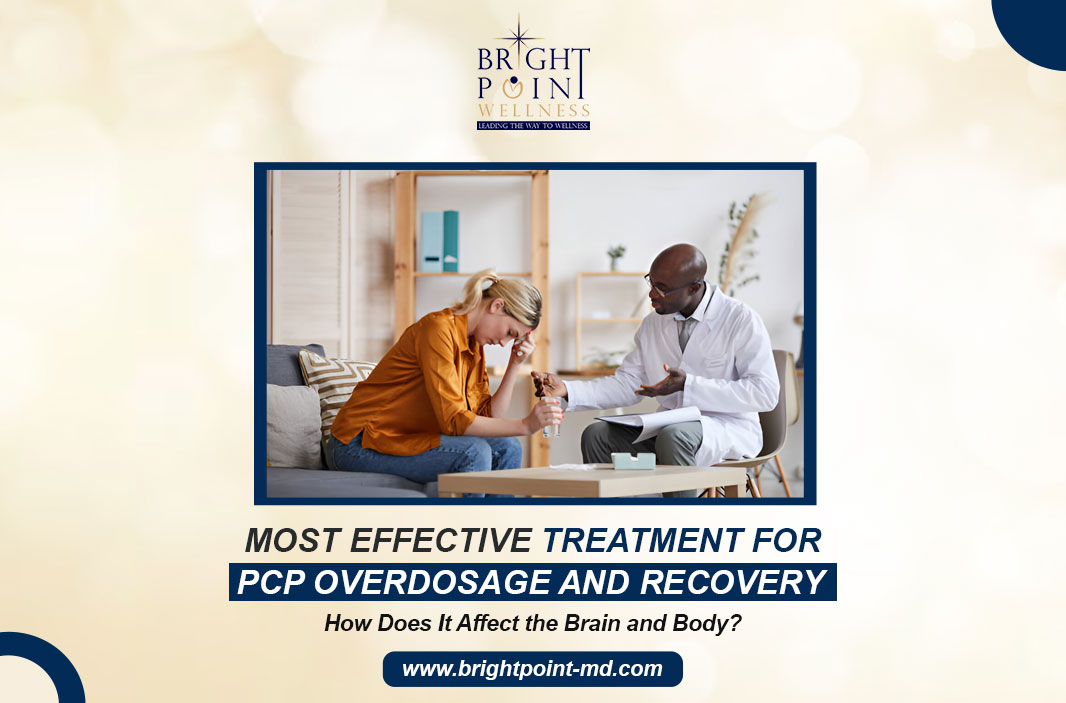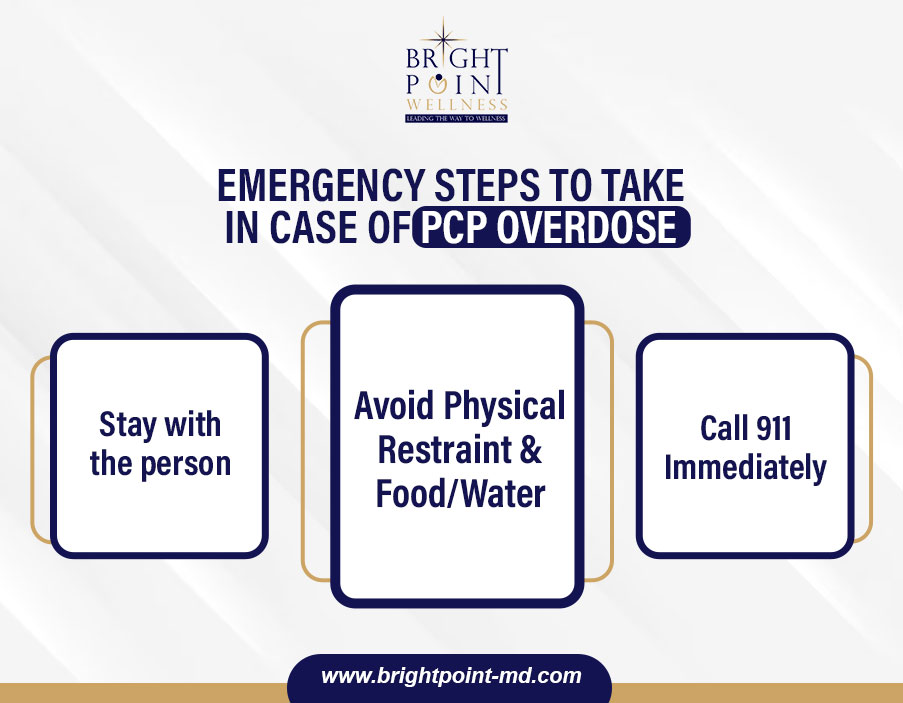
Phencyclidine (PCP), which is sometimes called “angel dust,” is a strong drug that makes people lose their minds. It has a direct effect on the central nervous system. PCP was once used as an anesthetic, but it is now a Schedule II controlled drug because it can be abused and has dangerous side effects.
In the past few years, there has been a concerning rise in PCP use and overdoses, which has made medical experts and police more worried.
The National Institute on Drug Abuse (NIDA) says that PCP is the cause of many trips to the emergency room every year.
The Substance Abuse and Mental Health Services Administration (SAMHSA) says that over 5,000 cases will be reported in 2019 alone. Because the drug makes people hallucinate and dissociate, they may act in uncertain and dangerous ways, which can put themselves and those around them in great danger. Users are more likely to be violent, hurt themselves, or do dangerous things, which raises the risk of serious injury or death.
There needs to be immediate medical help to keep people from dying, because studies show that about 1 in 10 PCP overdoses end in death without proper care.
This blog post will talk about the effects of PCP, the signs of an overdose, and why it’s important to act quickly. We will also talk about addiction treatment choices for people who are addicted to PCP and ways to keep people from overdosing.
What is PCP, and How Does It Affect the Brain and Body?
PCP is a synthetic drug that alters brain function by disrupting the normal actions of neurotransmitters, particularly glutamate. This disruption leads to distorted perceptions, hallucinations, and dissociation from reality.
When consumed, PCP can be smoked, snorted, swallowed, or injected. It quickly enters the bloodstream and affects the brain, leading to symptoms such as:
- Euphoria and heightened sensory perception
- Delusions and hallucinations
- Numbness and loss of coordination
- Aggressive or violent behavior
- Confusion and disorientation
Short-Term and Long-Term Effects of PCP Use
The effects of PCP vary depending on the dosage and frequency of use.
Short-Term Effects:
- Hallucinations and paranoia
- Impaired motor skills and speech difficulties
- Increased heart rate and blood pressure
- Nausea and vomiting
- Anxiety and panic attacks
Long-Term Effects:
- Memory loss and cognitive impairment is long term addiction
- Severe depression and suicidal thoughts
- Persistent psychosis and schizophrenia-like symptoms
- Kidney damage due to muscle breakdown
- Increased risk of overdose and death
Risks Associated with Chronic Use of PCP
PCP use that lasts for a long time can cause serious physical and mental dependence. People who have used drugs for a long time often have withdrawal signs like depression, anxiety, and strong drug cravings. Also, using PCP too often raises the risk of overdose, which can lead to:
- Seizures and coma
- Respiratory failure
- Rhabdomyolysis (muscle breakdown leading to kidney failure)
- Permanent brain damage
Signs and Symptoms of PCP Overdose
PCP, a potent hallucinogen, can produce serious bodily and psychological repercussions. Early detection of PCP overdose symptoms can save a life. Note these crucial indicators:
Physical Symptoms of PCP Overdose:
- Increased heart rate (tachycardia).
- Elevated blood pressure
- Respiratory distress
- Severe sweating
- Nausea and vomiting
- Dilated pupils
- Seizures
Behavioral and Psychological Symptoms of PCP Overdose:
- Violent or erratic behavior
- Hallucinations and delusions
- Loss of coordination
- Detachment from reality
- Extreme agitation or combativeness
How Medical Professionals Indicate a PCP Overdose:
If someone has the following symptoms, doctors will do several tests to confirm an overdose. Typically, they seek:
- Monitor heart rate, blood pressure, and respiration.
- Toxicology screening for PCP.
- Testing for seizures severe agitation and cognitive function.
- Physical exam to check for perspiration, dilated pupils, and other symptoms.
- Immediate PCP Overdose Responses
What Not to Do When Someone is Experiencing a PCP Overdose
Do not leave someone who has overdosed alone, as their state can get worse quickly if you do not help them. Don’t give them food or water because it could make them choke or get worse. Do not hold them down physically, as this could make them angry or hurt them.
Even though it’s important to stay cool, don’t get angry or confrontational; it could make things worse. If you take too much PCP, you could have seizures, go into a coma, or even die. Always call 911 right away and err on the side of caution.
Medical Treatment for PCP Overdose

Emergency Medical Procedures
PCP overdose is a medical emergency requiring immediate attention. Emergency services should be called right away. At the hospital, the patient’s vital signs will be assessed, the airway secured, and oxygen provided if needed. Intravenous fluids are administered to stabilize blood pressure and hydration.
Hospital-based Treatment
Activated charcoal may be used if the overdose is recent to absorb the remaining PCP. Medications like benzodiazepines can help calm agitation and prevent seizures. Continuous monitoring of heart rate, blood pressure, and temperature is crucial, as PCP can cause significant fluctuations.
Sedation and Supportive Care
Sedation with benzodiazepines or other sedatives is critical for managing agitation and preventing injury. Supportive care, including hydration management and respiratory monitoring, helps stabilize the patient.
Raising Awareness About the Dangers of PCP
PCP prevalence must be reduced by raising public knowledge of its hazards. Public health campaigns, school-based teaching, and outreach programs can warn about PCP overdose, mental health issues, and physical injury. Understanding these hazards helps people make health decisions and avoid harmful substances.
Addiction recovery resources abound. Addiction treatment centers, outpatient recovery programs, and local support groups like Narcotics Anonymous provide a safe space for people to seek help and find support. Professional counselors and therapists offer resources to assist addicts to recover and live a drug-free life.
Final Thoughts!
An excess of PCP is bad for both your physical and mental health. Overdosing on PCP can lead to restlessness, hallucinations, seizures, and breathing problems that could be life-threatening. Recognizing the signs of PCP overdose and getting medical help right away is very important.
In case of an emergency, medical treatment for a PCP overdose includes sedation, tracking, and help. If you act quickly, you can calm and treat the effects of an overdose. A lot of the time, long-term treatment of PCP overdose and rehab are needed to beat addiction and keep it from coming back.
Call addiction treatment specialists if you or someone you know is abusing PCP. Avoid PCP overdoses by preventing and intervening early.
BrightPoint MD provides comprehensive addiction recovery services to help people overcome substance misuse and recover. If you or a loved one needs help, contact BrightPoint MD in Maryland, USA. Now to discuss treatment options for PCP overdose and receive support.
Sources
-
-
Phencyclidine Overdose https://medlineplus.gov/ency/article/002526.htm
-
PCP Overdose: Effects, Treatments https://www.medicalnewstoday.com/articles/pcp-overdose-treatment
-
PCP Abuse https://nida.nih.gov/research-topics/hallucinogens/pcp-abuse
-








